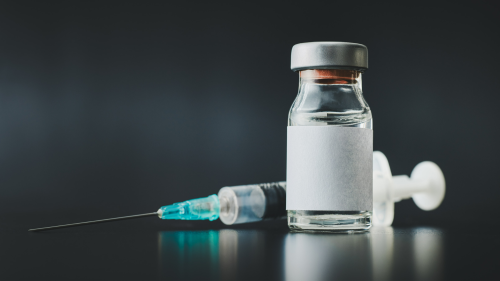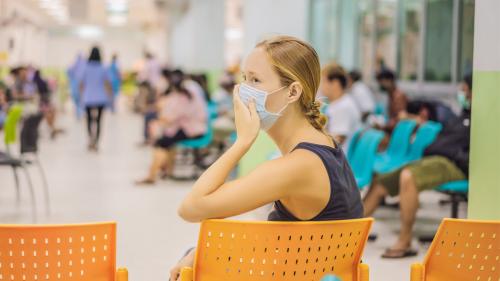
-
Understanding primary immunodeficiency (PI)

Understanding PI
The more you understand about primary immunodeficiency (PI), the better you can live with the disease or support others in your life with PI. Learn more about PI, including the various diagnoses and treatment options.
-
Living with PI
-
Addressing mental health
-
Explaining your diagnosis
- General care
- Get support
- For parents and guardians
-
Managing workplace issues
- Navigating insurance
-
Traveling safely

Living with PI
Living with primary immunodeficiency (PI) can be challenging, but you’re not alone—many people with PI lead full and active lives. With the right support and resources, you can, too.
-
Addressing mental health
-
Get involved

Get involved
Be a hero for those with PI. Change lives by promoting primary immunodeficiency (PI) awareness and taking action in your community through advocacy, donating, volunteering, or fundraising.
-
Advancing research and clinical care
-
Research Grant Program
-
Consulting immunologist
-
Diagnosing PI
-
Getting prior authorization
-
Clinician education
-
Survey research
-
Participating in clinical trials

Advancing research and clinical care
Whether you’re a clinician, researcher, or an individual with primary immunodeficiency (PI), IDF has resources to help you advance the field. Get details on surveys, grants, and clinical trials.
-
Research Grant Program
Contagious disease outbreaks remain an ongoing threat to the primary immunodeficiency (PI) community, particularly with declining vaccination rates. But, knowing the germ, how it spreads, and how to protect against it can decrease the risk of illness—and provide peace of mind.
According to the Centers for Disease Control (CDC), an outbreak is a cluster of disease cases that occurs within a specific timeframe, location, and population at a higher rate than otherwise expected. Infectious disease outbreaks are caused by bacteria, viruses, or other germs, like parasites, as well as exposure to toxins and chemicals in the air and water.
Depending on the outbreak, germs spread in a variety of different ways. Respiratory illnesses like flu, COVID-19, tuberculosis, measles, mumps, pertussis, and respiratory syncytial virus (RSV) spread from person to person through coughing, sneezing, or breathing. Intestinal diseases like norovirus and Salmonella are passed to others by direct contact with an infected person or animal, or through contaminated food, water, or surfaces. Bird flu spreads when the virus gets into a person’s eyes, nose, or mouth or is inhaled after encountering infected birds, bedding, feed, or water. Mpox is spread primarily through skin-to-skin contact.
Immunoglobulin (Ig) replacement therapy offers protection against some infectious diseases because it contains antibodies from people vaccinated against, or who have recovered from, those diseases. Studies show Ig products provide protective antibodies for measles, pneumococcal disease, diphtheria, chicken pox, and mumps.
Dr. Kate Sullivan, Children’s Hospital of Philadelphia (CHOP) pediatric immunologist and Immune Deficiency Foundation (IDF) Medical Advisory Committee (MAC) chairperson, points out, however, that Ig replacement therapy is not effective against pertussis, seasonal strains of influenza, and COVID-19.
While there is a vaccine for pertussis, its effectiveness wanes over time, and the CDC does not recommend a booster. Furthermore, there is a low vaccination rate for pertussis in adults, pointed out Sullivan.
“Unfortunately, not enough adults are vaccinated for pertussis to have antibodies in the immunoglobulin. Preparations are just not very high,” said Sullivan.
In the case of the flu, mutations in flu strains prevent adequate protection from Ig.
“Ig is not protective for the flu because the Ig is made from people who had the previous year’s flu, so the Ig products have the old flu antibodies, and so they’re not very effective for the current year’s flu,” said Sullivan.
“There’s a minuscule amount of data that even people who don’t make great antibodies get some protection from the flu vaccine. The data is not hugely persuasive, but I do usually recommend it to my patients even if they don’t make great antibodies.”
Antibody levels in Ig are also not sufficient to protect against COVID-19, said Sullivan, so she recommends the COVID-19 vaccine to prevent breakthrough infections.
“Weirdly, the COVID vaccine induces antibodies in people who really have terrible antibody production. The way in which it induces immunity is different than the traditional vaccines, so for almost all patients with common variable immune deficiency (CVID), they will make a response,” said Sullivan of the mRNA vaccine.
“The people who don’t make a response are the people who have no B cells and no ability to make antibodies whatsoever. So, the boys and men with X-linked agammaglobulinemia (XLA) are the perfect example. Or people who got rituximab, which is a drug that depletes your B cells, they will not respond to the COVID vaccine. But the vast majority of people with CVID do respond and should get it.”
Another important disease that Ig does not protect against and is particularly harmful to people with PI is norovirus, sometimes known as the “stomach bug” or “stomach flu.” Norovirus causes severe nausea, vomiting, diarrhea, and stomach pain. Some with PI who cannot clear the virus experience dehydration, malnutrition, and weight loss. The disease can be particularly explosive when people are in close quarters with one another, like children in school or vacationers on a cruise ship.
“Norovirus is one of a very small number of viruses that can live on surfaces for a sustained period of time. And so, if you're on a cruise ship and 18 people ahead of you held the banister going down the stairs, and one of those 18 people who had norovirus also has imperfect handwashing, there's a good chance you're going to get it,” said Sullivan.
“Norovirus on cruise ships gets all the press, but they're not the only place that it happens, and it's a huge issue for immunocompromised patients because some people with CVID can’t get rid of it. Ig does not protect against it, so it's particularly miserable for the people who get it because there's not much to do about it.”
Follow simple but effective steps to stay safe during disease outbreaks in schools or local communities, or if disease rates are rising nationwide. Wash hands for 20 seconds with soap and water, wear a mask for protection against respiratory infections, and adhere to vaccine recommendations.
“Never neglect handwashing, because people touch their eyes, and they touch their mouths. So, masking alone without handwashing is not nearly as effective,” said Sullivan.
Those who live near an outbreak of a highly contagious disease like measles should contact their provider.
“I use proximity as my surrogate. If there’s an infected child in the school with one of my patients and they’re not on Ig, I bring them in and give them Ig. At least I’m going to protect them for the next month. I don’t have a longer-term solution. It’s really the folks who’ve got immune deficiencies who aren’t on Ig who I perceive as being at risk,” said Sullivan.
When making travel plans, people with PI and their families should check to see if there are any outbreaks at their destination.
“Most people are worried about actually being on a plane. I know the masks are not pleasant but they should put on a KN95 because right now we have the flu, and for the last two months, about 10% of the population had the flu, so you just don’t want to take a risk on a plane and end up sick at your destination. So why not put on a mask and bring a bunch of Purell?” said Sullivan.
Sullivan said that the U.S. doesn’t have large-scale disease outbreaks like other countries, such as Haiti, whose population is struggling with cholera, or parts of the Middle East affected by war, where polio is surging.
“The difference between the U.S. and other parts of the world where there are explosive outbreaks is that we’ve got great sanitation and an excellent water supply, which is huge,” said Sullivan.
The most significant outbreak threat in the U.S. is from diseases that have yet to be seen, said Sullivan, and the community should “expect the unexpected.”
“I think the diseases that we will see in the U.S. will be those that are new and that we’ve never seen before in the population, like the SARS-CoV-2 outbreak. Those are the things that I think are big threats to the general population, but especially to the PI community. And those tend to be very unpredictable. So, I think it’s very organic. I think pathogens are very opportunistic and really hard to predict,” said Sullivan.
Keep current on disease outbreaks by visiting:
Screen documentary
Host a private screening of Compromised: Life Without Immunity to experience the resilience, hope, and determination of the PI community. And know that your hosted event can be two people or 100+!
Watch the filmRelated resources

Foundation provides guidance amid changing vaccine recommendations

Foundation to follow medical societies' vaccine schedules in light of ACIP hepatitis B decision

Preparedness key when visiting emergency department with PI
Sign up for updates from IDF
Receive news and helpful resources to your cell phone or inbox. You can change or cancel your subscription at any time.





The Immune Deficiency Foundation improves the diagnosis, treatment, and quality of life for every person affected by primary immunodeficiency.
We foster a community that is connected, engaged, and empowered through advocacy, education, and research.
Combined Charity Campaign | CFC# 66309

